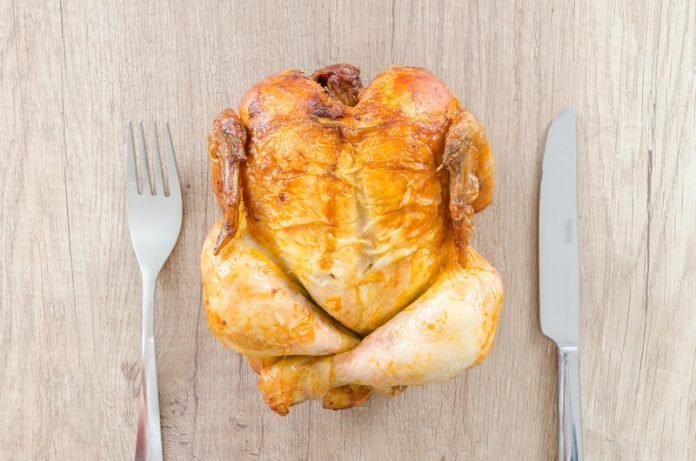
Non-alcoholic fatty liver disease is the most common chronic liver disease in the world, with sometimes life-threatening consequences.
In a new study from Deutsches Zentrum fuer Diabetesforschung, researchers found a high-protein, calorie-reduced diet can cause the harmful liver fat to melt away — more effectively than a low-protein diet.
Non-alcoholic fatty liver disease is characterized by a build-up of fat in the liver and is often associated with obesity, type 2 diabetes, high blood pressure and lipid disorders.
If left untreated, fatty liver can lead to cirrhosis with life-threatening consequences.
The causes of the disease range from an unhealthy lifestyle — that is, eating too many high-fat, high-sugar foods and lack of exercise — to genetic components.
In the study, the team examined how the protein content of food influences the amount of liver fat in obese people with a non-alcoholic fatty liver.
For this, 19 participants were assigned to either a diet with a high or low protein content for three weeks. Subsequently, surgery to treat obesity (bariatric surgery) was carried out and liver samples were collected.
The team showed that a calorie-reduced, high-protein diet decreased liver fat more effectively than a calorie-reduced, low-protein diet: while the liver-fat content in the high-protein group decreased by around 40%, the amount of fat in the liver samples of the low-protein group remained unchanged.
The study participants in both groups lost a total of around five kilograms.
The researchers assume that the positive effect of the high-protein diet is mainly due to the fact that the uptake, storage and synthesis of fat is suppressed.
This is indicated by extensive genetic analyses of the liver samples.
According to these analyses, numerous genes that are responsible for the absorption, storage and synthesis of fat in the liver were less active after the high-protein diet than after the low-protein diet.
The researchers were also surprised that the blood levels of Fibroblast Growth Factor 21 (FGF21) were lower after the high-protein diet which reduced more liver fat than after the low-protein diet. FGF21 is known to have beneficial effects on metabolic regulation.
The team says if the results continue to be confirmed in larger studies, an increased intake of protein together with a healthy low-fat diet may work as an effective fatty liver therapy.
If you care about liver health, please read studies about this common weed killer linked to human liver disease and findings of 5 big myths about liver detoxing you should know.
For more information about liver disease prevention and treatment, please see recent studies about 7 risk factors for fatty liver disease everyone should know and results showing a new way to predict fatty liver disease.
The study is published in Liver International. One author of the study is Dr. Olga Ramich.
Copyright © 2021 Knowridge Science Report. All rights reserved.



